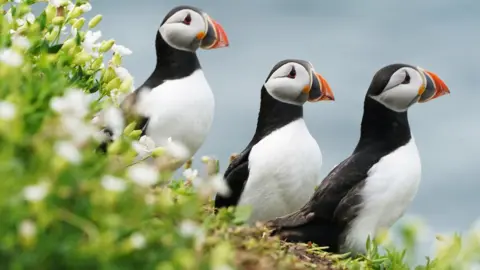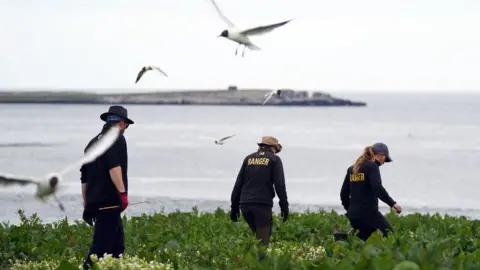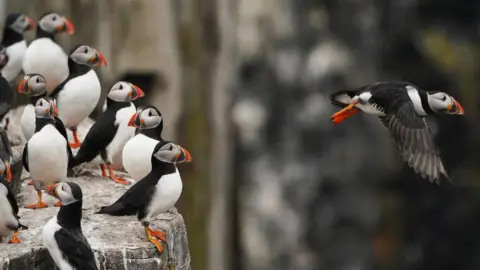Farne Islands' puffin count resumes after Covid hiatus
 PA Media
PA MediaThe annual puffin census has resumed off the Northumberland coast after it was suspended during the pandemic.
The Farne Islands are home to one of the UK's largest populations but there is concern that numbers are in decline due to bad weather and food shortages.
National Trust rangers have to check hundreds of burrows - their underground nests - for signs of occupation.
Surveys were halted by Covid so this year's study is vital for understanding how the birds are faring.
Numbers have fallen by 15% in recent years, and there is concern climate change may have affected the population of sand eels, which are puffins primary source of food.
Recent storms have also flooded burrows and washed away soil.
 PA Media
PA MediaHarriet Reid, area ranger at the National Trust, said: "Puffins live on the edge in every sense, mostly living on remote, ground predator-free islands and are very picky when it comes to food, preferring sand eels.
"In order to track how puffins are doing, our counts are particularly important so that we can analyse population trends to see if they are increasing, decreasing or stable."
Dr Richard Bevan, lecturer in zoology at Newcastle University, said: "Looking at the data, it is worrying to see that over the last four years we have seen a downward trend.
"However, these are data for a short time period and compared to the population counts in the early 1990s they are still reasonable numbers.
"The uncertainty from the last couple of seasons due to Covid is something that is really important to address with this year's figures."
 PA Media
PA Media
Follow BBC North East & Cumbria on Twitter, Facebook and Instagram. Send your story ideas to [email protected].
